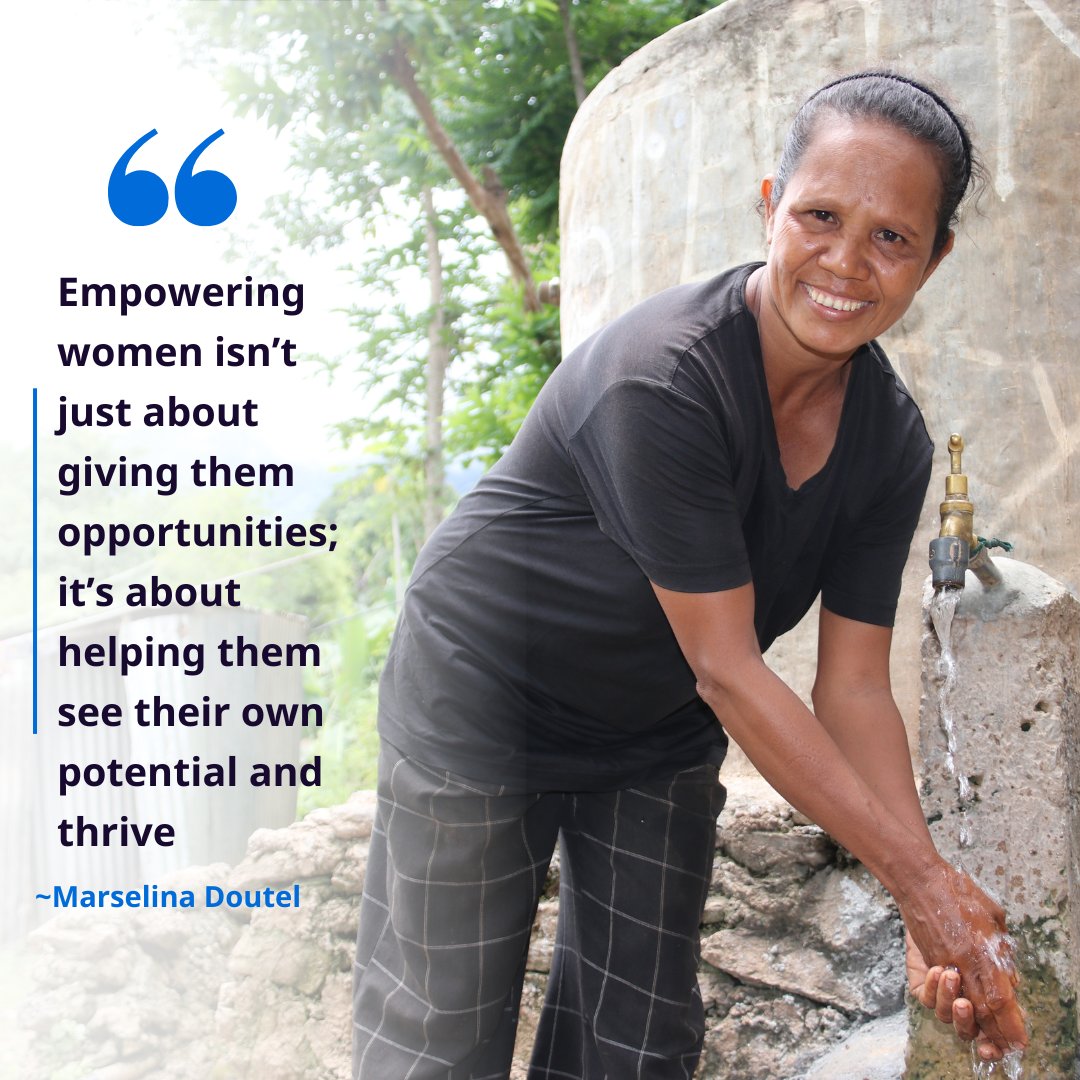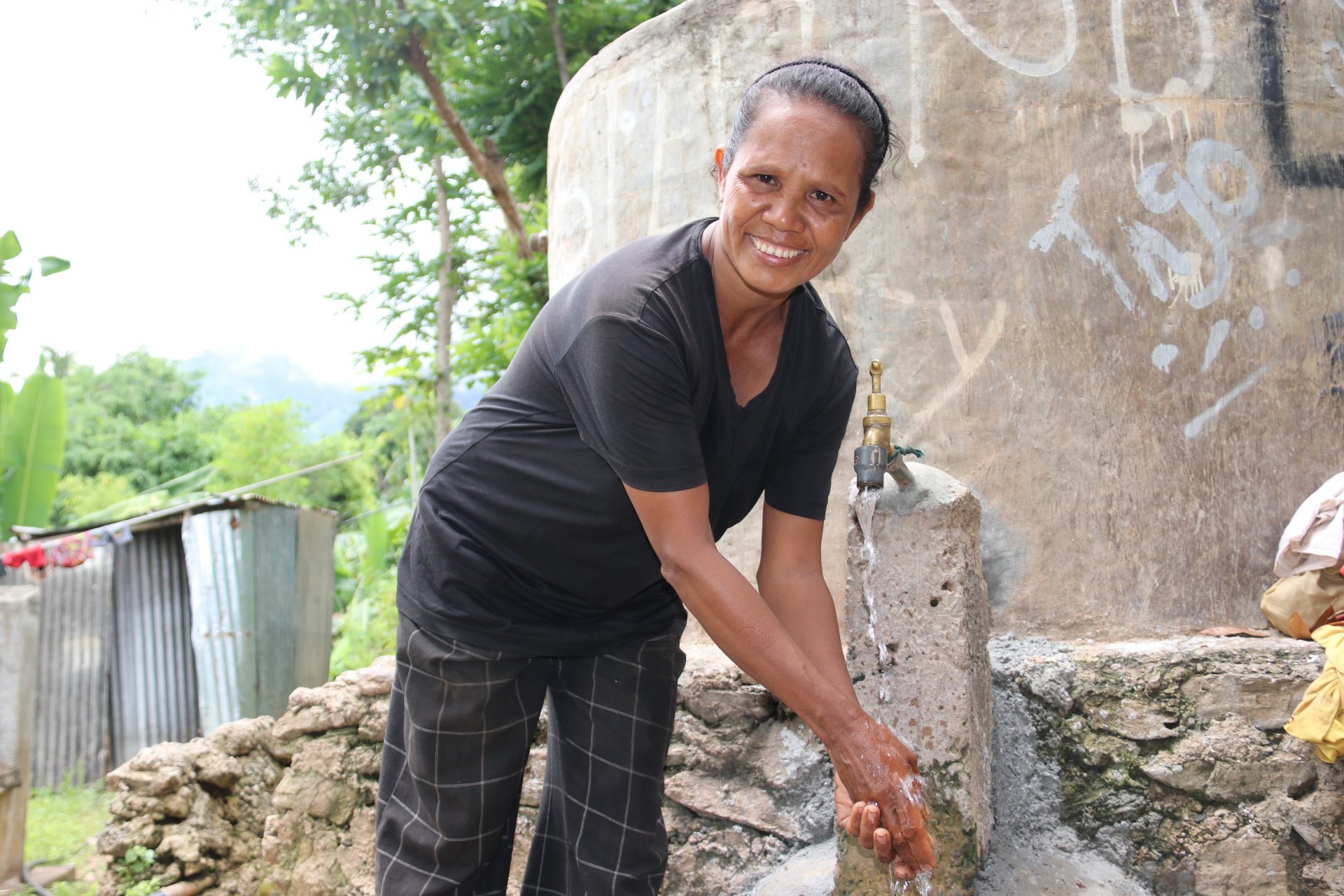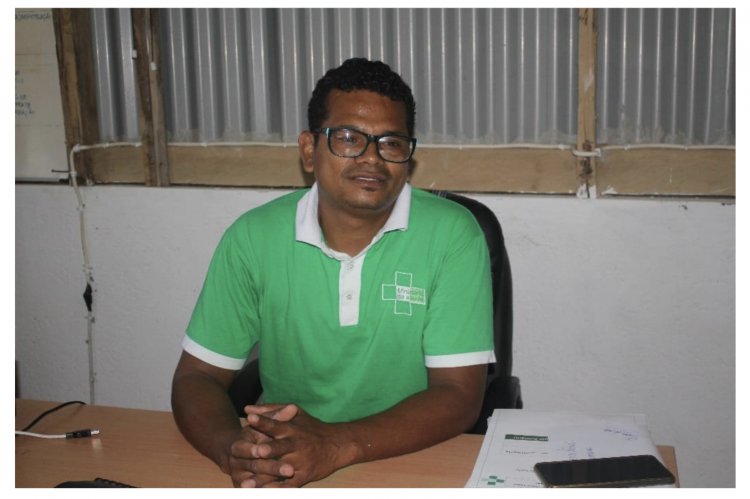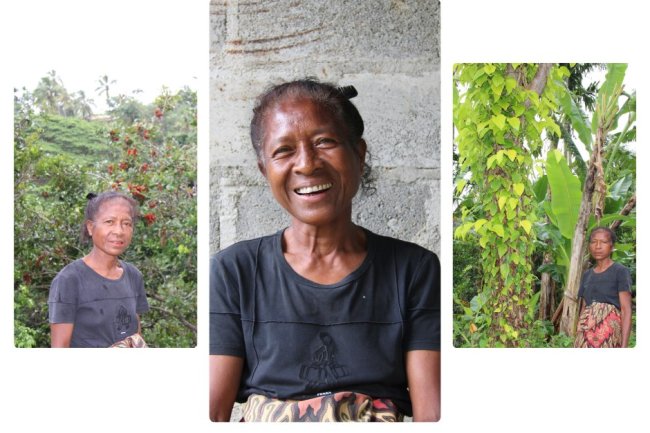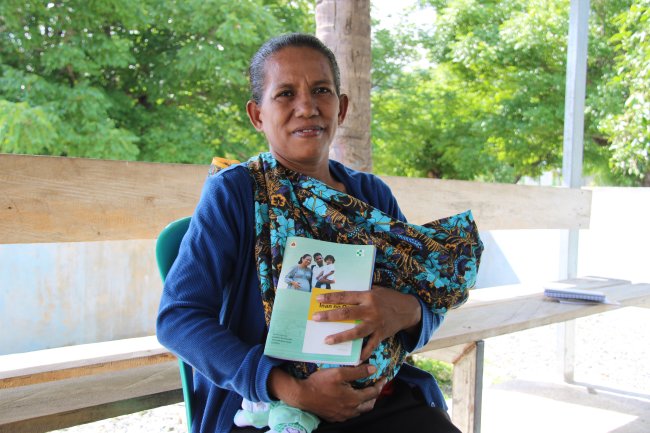Breaking Ceilings: Marselina's Journey as a Female Leader in Community Water Management
In the heart of Aldeia Metir, Suku Fatumasi, in Liquica Municipality, lies the story of Marselina Doutel, a dedicated female community member who has emerged as a beacon of leadership in her village. Since 2018, Marselina has served as a technician in the Water Users Group (GMF), showcasing a journey marked by challenges, growth, and resilience. Her story exemplifies the power of capacity-building, self-confidence, and community collaboration.
When the Lebmetan water system was constructed, the community made a groundbreaking decision by selecting Marselina, a woman, to lead its technical operations—an area traditionally dominated by men. At the time, Marselina had little technical experience, but she stepped into the role with determination, supported by training provided by WaterAid and the local NGO Fundasaun Hafoun Timor Lorosa’e (FHTL) through the Water for Women project. These trainings not only equipped her with the skills to maintain the water system but also empowered her with confidence and leadership skills. She learned to speak up in meetings, organise her community, and advocate for the inclusion of women in decision-making processes.
Under Marselina’s leadership, the GMF structure—composed of three women and two men—provides water services to 228 villagers. It has become a model of collaboration and inclusivity. Marselina plays a role in monitoring the water system, mobilising the community to handle maintenance, and ensuring everyone—especially women—participates in repairs and operations. Her efforts have changed how the community views women’s leadership, breaking stereotypes and inspiring other women to step forward into non-traditional gender roles.
The impact of Marselina’s leadership extends beyond technical success. Her work has promoted a culture of shared responsibility, with men and women working together to maintain the water system. Community members now report and address issues, demonstrating how collective action can overcome challenges.
Marselina acknowledges that the journey hasn’t been without obstacles. Misunderstandings about the role of GMF technicians and initial resistance from some community members, particularly because she is a woman, were significant hurdles. However, her perseverance, confidence, and effective communication skills have shifted mindsets, proving that women can lead and succeed in traditionally male-dominated spaces.
This experience has not only transformed Marselina’s life but also empowered her to dream bigger. She envisions taking on leadership roles at the municipal level, further contributing to her community’s development. Her story is a testament to the transformative power of empowering women—not just for themselves but for the entire community.
In Marselina’s own words: “Empowering women isn’t just about giving them opportunities; it’s about helping them see their own potential and thrive.” Her journey stands as a shining example of what’s possible when women are given the tools, trust, and support to lead.
